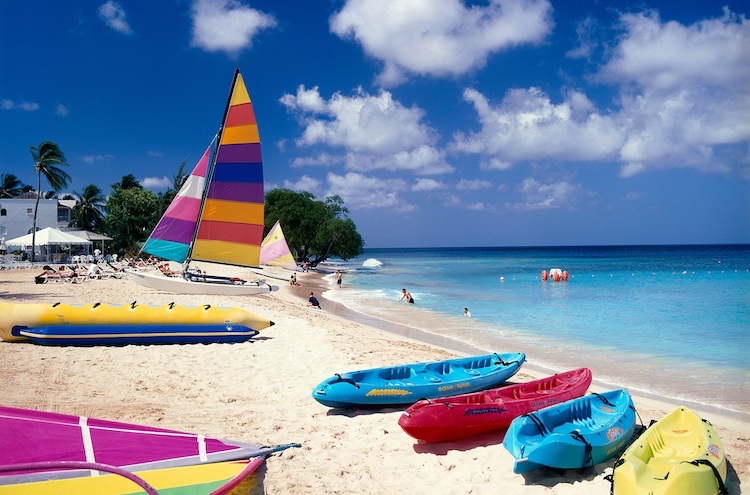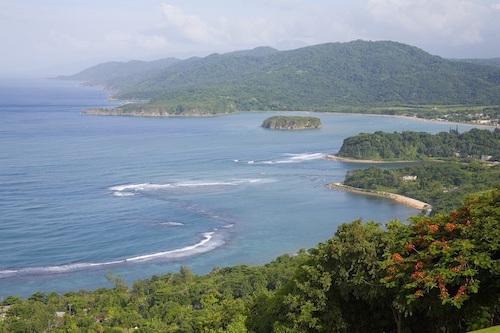
By Linda Hutchinson-Jafar
PORT OF SPAIN, Trinidad, 26 April 2023 (IDN) — The Caribbean, a popular tourist destination known for its sun-kissed beaches, tranquil waters, and vibrant culture, is facing a harsh reality due to the devastating impacts of climate change. (P02) CHINESE | JAPANESE
As a critical economic lifeline for many Caribbean islands, the tourism industry is confronting an existential crisis as global warming takes its toll on the region’s delicate ecosystems, infrastructure, and the livelihoods of communities.
With rising sea levels, intensifying storms, and deteriorating coral reefs, the future of Caribbean tourism is at stake, necessitating urgent action and adaptation to protect this beloved destination.
Nicola Madden-Greig, President of the Caribbean Hotel and Tourism Association emphasized that tourism is the primary economic driver of the Caribbean and the region most reliant on travel and tourism globally. “The decline in tourism due to climate change would devastate the overall economy, directly impacting other sectors such as agriculture, manufacturing, transportation and the creative industries,” she said in an interview with IDN.
In 2019, eight out of the ten most tourism-dependent countries worldwide were in the Caribbean. Although the sector’s average annual growth rate of 3% surpassed the regional economic growth of 1.3% between 2010 and 2019, it fell short of the global average Travel & Tourism growth of 4.2%, according to the World Travel & Tourism Council (WTTC).
The WTTC’s current growth trajectory projects that, over the next decade, Travel & Tourism (T&T) GDP in the Caribbean will increase at an average annual rate of 5.5%, more than double the overall economic growth of 2.4%. T&T jobs are expected to grow by an average rate of 3.3% annually, generating over 916,000 new jobs by 2032.
The International Labour Organization (ILO) estimates that, on average, the tourism industry directly contributes up to 33% of Gross Domestic Product (GDP), 52% of export receipts, and over 43% of indirect and direct employment. In heavily tourism-dependent countries like Antigua and Barbuda, employment can reach up to 90%. In 2021, the travel and tourism sector in the Caribbean contributed over US$ 39 billion to GDP, with the Dominican Republic and Cuba registering the highest contributions, as reported by Statista.
Madden-Greig highlighted the severe threat posed by rising sea levels and the alarming forecast from the 2018 Intergovernmental Panel on Climate Change (IPCC), which predicted that a 1.5-degree Celsius increase in global warming would cause between 70-90% of the world’s coral reefs to vanish. “It would be catastrophic for tourism in the Caribbean region that depends heavily on its natural resources and food supply,” she added. Without drastic action to reduce greenhouse emissions, Madden-Greig warned that by the early 2030s, 99% of the world’s reefs would experience heatwaves too frequent for recovery.
Neil Walters, Acting Secretary General of the Caribbean Tourism Organization (CTO), emphasized that since climate change threatens the tourism industry’s integrity and stability, initiatives to manage the industry’s response and mitigate its overall environmental footprint are essential. “It is clear, however, that the tourism industry cannot address the challenge of climate change in isolation but must do so within the context of the broader international sustainable development agenda,” he told IDN.
CTO, whose membership includes governments and non-government tourism entities across Dutch, English, French, and Spanish countries and territories, along with CHTA and the Caribbean Alliance for Sustainable Tourism (CAST), have signed the Glasgow Declaration for Climate Action in Tourism. Launched at the UN Climate Change Conference (COP26) in Glasgow in November 2021, the declaration serves as a commitment and call to action for all travel and tourism stakeholders to accelerate climate action in tourism.
Walters stated, “The Glasgow Declaration emphasizes collaboration and cooperation among stakeholders related to the tourism industry, aligning with CTO’s strategy to manage the industry’s response and build partnerships for advocacy, education, and awareness to support mitigation and adaptation efforts.”
Madden-Greig indicated that the Caribbean played a pivotal role in developing and ratifying both the Paris Agreement and the Glasgow Agreements. “CHTA/CAST added its support, endorsing our more than 20 regional countries in advancing global support. The Caribbean is one of the most vulnerable areas in the world to climate change, and we must be one of the world’s most outspoken and exemplifying advocates,” she asserted.
At the regional level, the CTO has implemented various projects and initiatives to enhance knowledge and awareness of Climate Variability and Climate Change (CVC) and its impact, build capacity for mitigation/adaptation, inform policy formulation, and disseminate best practices to mitigate CVC’s impact.
The owner and CEO of Fond Doux Eco Resort in St. Lucia told IDN that the tourism industry could play a crucial role in addressing climate change by adopting sustainable practices such as reducing energy consumption, conserving water, and managing waste. The benefits of taking action include reduced operating costs, improved resource efficiency, and increased market competitiveness.
“The political will is strong for investing in renewable energy and energy efficiency, promoting sustainable tourism practices, and raising public awareness of climate change. However, more resources are required to address the issue comprehensively,” she said adding that the most effective strategies are those that balance environmental sustainability with economic viability, ensuring that businesses remain competitive and profitable.
Climate change is already having a significant impact on tourism in the Caribbean, affecting both the infrastructure and attractions that tourists come to experience, as well as the natural resources that support the tourism industry. Climate change is blamed on causing more frequent and severe weather events, such as hurricanes fueled by warmer ocean temperatures.
Dominica, a small Eastern Caribbean Island promoting itself as a ‘Nature Island’ tourist destination, has suffered significant damage from powerful hurricanes and storms in recent years. Hurricane Maria, which struck in September 2017, destroyed over 90% of the island’s structures and severely impacted its economy. Dominica’s losses, estimated at 224% of GDP by the World Bank, included damages to its rainforest and tourism, which accounted for 19% of the total losses.
To combat this, Dominica aims to become the world’s first hurricane-proof country through its Climate Resilience Execution Agency for Dominica (CREAD), which leads strategic initiatives across sectors. One such initiative is revitalizing micro, small, and medium enterprises which involves providing analytical tools to assess and improve their performance, facilitating access to finance and mobilizing support for capacity building.

< Stunning views from Firefly Ocho Rios in Jamaica. Photo Credit: Caribbean Tourism Organisation
In 2018, the Caribbean faced a severe drought that affected agriculture and water supplies in countries such as Jamaica, Barbados, and Trinidad and Tobago, linked to changing weather patterns caused by climate change. In 2019, the Bahamas was hit by Hurricane Dorian, a Category 5 storm that caused widespread damage and loss of life, considered one of the most powerful storms ever recorded in the Atlantic.
Caribbean islands and hoteliers are taking steps to address the effects of climate change on the tourism industry, a significant energy consumer. Sandals Resort International, the leading hospitality chain in the region, has reduced its dependence on fossil fuels through sustainable practices such as the use of solar panels and solar water heating systems at their resorts.
Sandals Foundation, the charitable organization of Sandals Resort International, set a target of training 100,000 people in conservation efforts and plant 30,000 coral fragments in the ocean in 2009. By 2022, they oversaw the safe hatching of 114,000 turtles, collected 63,000 pounds of trash, and trained 55,000 individuals in marine conservation awareness. The foundation’s new objectives include safely hatching an additional 20,000 turtles and out-planting coral fragments that will result in up to 2,000 corals growing per year in dying reefs.
The Caribbean is also taking steps to reduce its reliance on a single type of tourism attraction that may be vulnerable to climate change.
“Initiatives to diversify the regional tourism product, such as promoting community-based tourism, efforts to preserve natural and cultural resources, banning single-use plastics, promoting energy and water efficiency, and terrestrial and marine conservation have contributed significantly to systematically reducing the sector’s carbon footprint, and have proven to be not only climate-friendly, but also profit-friendly, in several cases,” Walters said. [IDN-InDepthNews]
Photo: Boats in Mullins Beach in Barbados. Credit: Caribbean Tourism Organisation.











